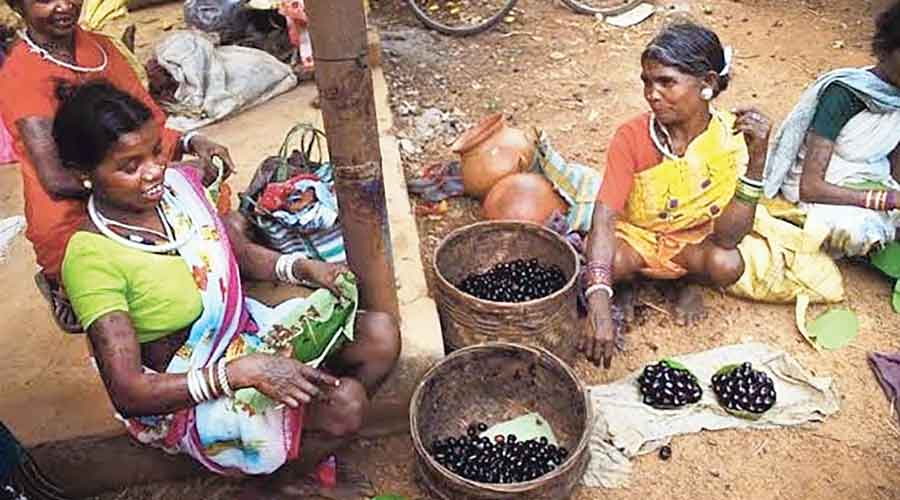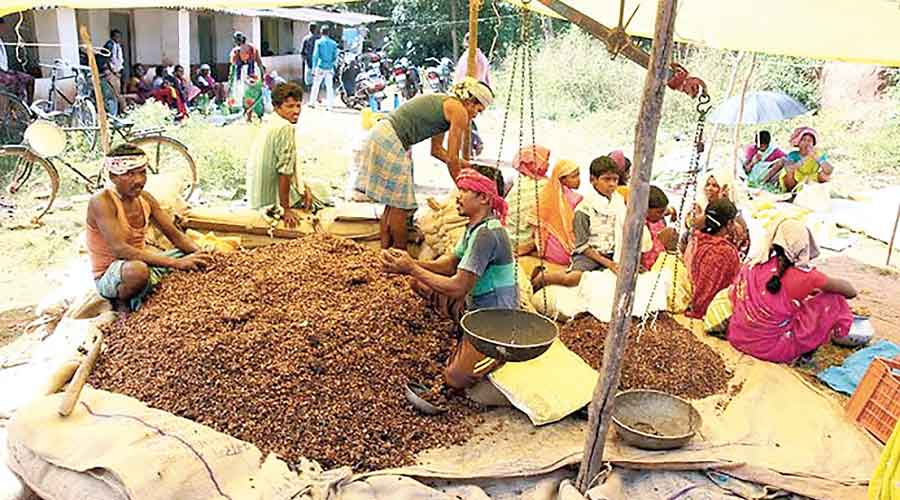The first step at providing institutional market linkage for forest produce through an expert agency has begun on a pilot project in the Simdega district of Jharkhand last week.
“We held a meeting with representatives of Bharti Institute of Public Policy of the Indian School of Business (Hyderabad) earlier last week. They are studying the market and would suggest ways at helping marketability of forest produce. We will be implementing their ideas within a few months,” said Simdega deputy commissioner Sushant Gaurav.
Significantly, tribes in Jharkhand are deprived of getting a fair price for the minor forest produces they collect due to their selling the products in an unorganised manner.
During the second anniversary function of Hemant Soren-led Jharkhand government on December 29 last year, the tribal welfare department had signed an MoU with the Bharti Institute of Public Policy at Indian School of Business (ISB), Hyderabad, to develop scalable and sustainable solutions focussing on forest-based industrial value chains.
In January 2020, the chief minister, less than a month old in office, had approached the ISB to propose a cluster-based strategy for the development of forest economy in the state. Based on research on the current scale and future potential of existing value chains, the team of researchers from the ISB, proposed an institutional design to facilitate sustainable forest management, value addition, and industrial procurement of seasonal forest products.

Tribals sell forest products at a village haat. Bhola Prasad
As part of the action plan, starting with creating incentives for local communities by establishing community forest resource rights under the Forest Rights Act.
The team is also working closely with Jharkhand State Livelihood Promotion Society (the nodal agency for the National Rural Livelihoods Mission in Jharkhand) for supporting this vision through women’s self-help groups (SHG).
“We will prepare a business plan based on market demand for select forest products and assess the need for capital investments in infrastructure for collection, storage, processing, and transportation of forest products through women-centric forest-based enterprises. We will build the capacity of SHG leaders for product aggregation and pre-processing through technological enhancements,” explained a research associate at the ISB who attended the Simdega meeting.
This unique project also represents a triple-win opportunity by reducing environmental threats, creating jobs at the bottom of the pyramid, and establishing sustainable forest management systems.
Based on the success of the pilot project in Simdega, it will be replicated in other districts of the state where forest produce is available in abundance.
“Forest produce is the main source of additional income for the tribal community. They use various plants, leaves of trees, flowers, fruits and seeds, mushroom, tuber-root etc. for their livelihood and they also earn from various types of grass, oil, gum, lac. People living inside or near the forest earn more than 25 per cent of their income by selling forest produce.
“The villagers sell various products made from the Sakhuwa tree, oils made using seeds of various trees such as Mahua, Karanj, Kusum, Neem etc. The pilot project is aimed at improving the use of available resources in order to improve the economy in rural areas,” informed a source in the chief minister’s office.










